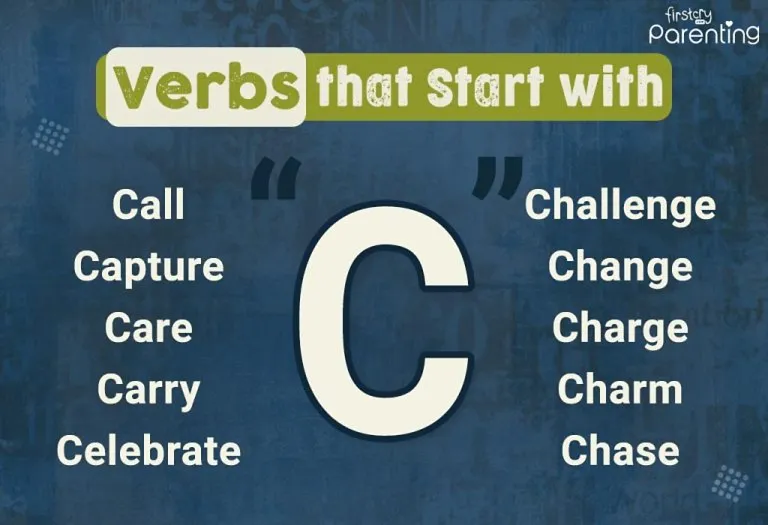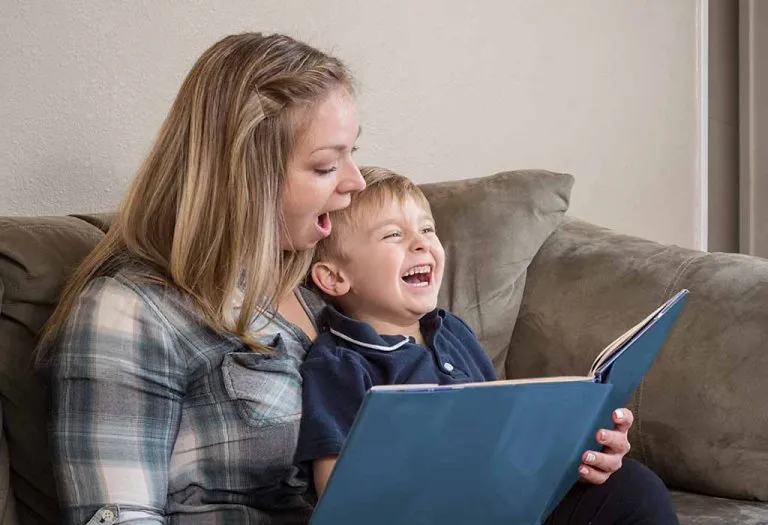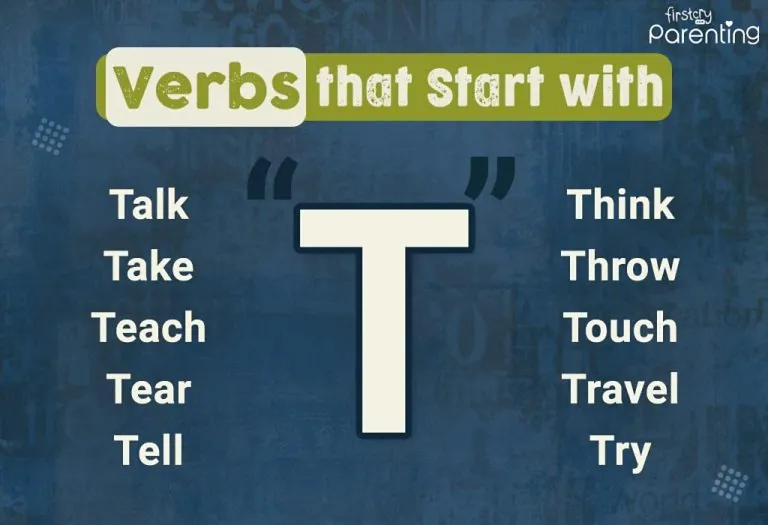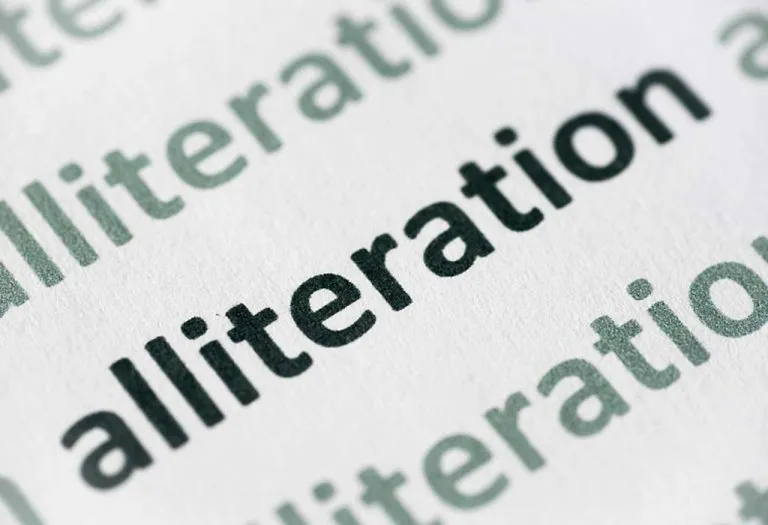Verbs That Start With C in English (With Meanings & Examples)
- What are the Verbs Beginning With C?
- Common Verbs Starting With C
- Action Verbs That Start With C
- Positive Verbs That Start With C
- More Verbs That Begin With C
- FAQs
- Also, Discover the Verbs That Start With A to Z
Navigating the vast ocean of the English language can be challenging, especially for the young minds of preschoolers and kids. Mastering verbs – the action-packed words that breathe life into sentences – becomes crucial as they embark on their linguistic journey. Today, we’re diving into an exciting exploration of verbs that start with the letter C, a treasure trove of vocabulary perfect for enriching our youngest learners’ linguistic arsenal. This guide aims to shed light on the significance of these verbs, offering a warm and engaging pathway to enhance the vocabulary for kids. Whether you’re a parent seeking to support your child’s language development, a teacher crafting fun lesson plans, or simply a curious mind, our exploration of verbs that start with C for preschoolers and kids promises to be a delightful adventure through the wonders of words.
What are the Verbs Beginning With C?
Verbs starting with C encompass various actions, states, and occurrences, painting vivid pictures in our sentences. These verbs with C are the linguistic building blocks that allow us to express movements, emotions, and interactions colourfully and dynamically. From “create” to “cuddle,” each verb opens up a world of storytelling possibilities, enriching our communication with depth and clarity.
Common Verbs Starting With C
Diving into the realm of English verbs, starting with C, reveals a fascinating mix of actions and states that enrich our conversations and writings. These verbs serve as essential tools for expression, enabling us to convey our thoughts, actions, and feelings with precision and flair. Below, we explore 15 common verbs beginning with C, delving into their meanings and illustrating their usage with examples. This journey will expand your vocabulary and enhance your ability to communicate ideas and emotions.
1. Call
To verbally request someone’s attention or to contact someone by phone.
Example: Call me when you arrive home safely.
2. Capture
Taking control of or seizing something, often by force, can also mean accurately depicting or expressing something.
Example:The photographer managed to capture the beauty of the sunset perfectly.
3. Care
To feel concern or interest in something or someone; to look after and provide for someone’s needs.
Example: She always cares for her plants with great attention.
4. Carry
To hold or support something while moving it from one place to another.
Example: Please carry these boxes to the attic.
5. Celebrate
To acknowledge a significant or happy event with festivities or other enjoyable activities.
Example: We celebrate our anniversary by going out to dinner.
6. Challenge
To invite someone to participate in a competition or to confront a task that tests one’s abilities.
Example: He challenged me to a game of chess.
7. Change
To make or become different; to replace something with something else.
Example: She decided to change her hairstyle for the new year.
8. Charge
To demand payment for a service or product can also mean to rush forward in attack or to fill something with energy.
Example: The restaurant will charge an extra fee for delivery.
9. Charm
To attract or delight someone in a seemingly magical way.
Example: His smile would always charm his grandmother.
10. Chase
To follow rapidly to catch or overtake; often used in the context of pursuit.
Example: The cat chased the mouse around the garden.
11. Cheer
To shout out words or make noises to show approval or to encourage someone.
Example: They cheered loudly when the team scored a goal.
12. Choose
To select from several possibilities to decide on.
Example: You can choose any dessert from the menu.
13. Clean
To make something accessible from dirt, marks, or mess.
Example: Please clean your room before your friends come over.
14. Climb
To ascend or go up something using the feet and often the hands.
Example: She loves to climb trees in her backyard.
15. Close
To move to cover an opening, to shut something.
Example: Remember to close the window before you leave.
Action Verbs That Start With C
Action verbs that start with the letter C are dynamic words that propel our sentences into motion, vividly describing what the subject is doing. These verbs are crucial for storytelling, allowing us to depict a wide range of activities and movements with clarity and energy. In this section, we’ll explore 15 action-packed verbs beginning with C, shedding light on their meanings and demonstrating their sentence use. Each example will help illustrate how these verbs can bring your narratives to life, making your communication more effective and engaging.
1. Clap
To strike the palms of the hands together repeatedly, often to show appreciation or enjoyment.
Example: The audience clapped enthusiastically after the performance.
2. Combine
To join or mix two or more things.
Example: Combine the flour, sugar, and eggs to make the cake batter.
3. Conceive
To form or devise a plan or idea.
Example: The architect conceived a bold design for the new building.
4. Consolidate
To combine several things into a single, more effective whole.
Example: The company consolidated its various departments into a single office building.
5. Construct
To build or make something by assembling parts.
Example: They plan to construct a new playground in the neighbourhood.
6. Conquer
To overcome or defeat through force or skill.
Example: The team worked together to conquer the challenging game.
7. Cook
To prepare food by heating it, often combining ingredients to create dishes.
Example: She loves to cook Italian cuisine for her family.
8. Coordinate
To organise harmoniously.
Example: The team coordinated their efforts to complete the project on time.
9. Crawl
To move on hands and knees or by dragging the body close to the ground.
Example: The baby crawled across the room towards her toys.
10. Create
To bring something into existence.
Example: He created a beautiful painting for the art competition.
11. Criticise
To express disapproval of someone or something based on perceived faults or mistakes.
Example: The teacher criticised the project for needing more in-depth research.
12. Cross
To go from one side of something to the other; often used with roads, bridges, etc.
Example: Look both ways before you cross the street.
13. Crush
Press or squeeze something with force so it becomes flattened, damaged, or deformed.
Example: She crushed the can with her foot after finishing her drink.
14. Cry
To shed tears as an expression of emotions, such as sadness, joy, or frustration.
Example: He couldn’t help but cry during the emotional movie.
15. Cut
To divide or reduce something by using a sharp tool.
Example: Please cut the cake into equal slices.
Positive Verbs That Start With C
Positive verbs that start with C are like rays of linguistic sunshine, adding warmth, encouragement, and optimism to our sentences. These verbs describe actions and infuse them in a positive light, uplifting our spirits and those of our listeners or readers. Let’s delve into 15 positive verbs, beginning with C, exploring their meanings and how they can spread joy, inspiration, and positivity through our words. Each example will highlight the verb in action, demonstrating its power to brighten communications and interactions.
1. Calm
To soothe or reduce anxiety, stress, or excitement.
Example: The gentle music helped to calm the restless toddler.
2. Capable
To have the ability, skill, or capacity to do something.
Example: She is a capable leader who can handle challenging situations effectively.
3. Captivate
To attract and hold the interest or attention of, as by beauty or excellence.
Example: The fascinating lecture captivated the entire audience.
4. Charismatic
To possess a compelling charm.
Example: The politician’s charismatic personality helped him win over the crowd.
5. Cheerful
Noticeably happy and optimistic.
Example: Despite the rainy weather, he remained cheerful throughout the day.
6. Cherish
To hold something dear, valuing it highly and treating it with care and affection.
Example: Cherish the moments you spend with loved ones.
7. Collaborate
To work jointly on an activity or project to achieve a shared goal.
Example: When we collaborate, we can accomplish great things together.
8. Comfort
To provide solace or reassurance to someone distressed or upset.
Example: He tried to comfort his sister after she lost her job.
9. Compassionate
To show kindness and empathy towards others.
Example: The nurse was compassionate towards the patient’s suffering.
10. Compliment
To praise or express approval of someone’s achievement or quality.
Example: Always remember to compliment your friends on their accomplishments.
11. Confident
To have faith in oneself and one’s ability.
Example: She is confident in her presentation skills.
12. Connect
To establish a relationship with someone or something.
Example: She connects well with her students, making her a beloved teacher.
13. Contribute
To give (especially money or time) to help achieve or provide something.
Example: Everyone contributed to the fundraiser to support the community centre.
14. Courageous
To possess bravery and the ability to face difficulties without fear.
Example: The firefighters showed courageousness in rescuing the trapped victims.
15. Cultivate
To develop or improve by education or training; to foster growth.
Example: Cultivate a positive mindset to overcome challenges more effectively.
Incorporating these positive verbs into our language enriches our vocabulary and allows us to convey actions in a way that uplifts and inspires. By choosing words with positive connotations, we can make our conversations and writings sources of encouragement and light.
More Verbs That Begin With C

As we continue to explore the rich tapestry of the English language, it becomes evident that the verbs beginning with the letter C offer an incredible variety of expressions. Beyond those already highlighted, these verbs encompass actions and states that can add depth and nuance to our communication. In this section, we present an additional 50 verbs starting with C. This list will further expand your vocabulary, enabling you to choose the correct verb for any context.
| Verbs | ||
| Calculate | Condemn | Contemplate |
| Calibrate | Conduct | Contend |
| Cancel | Confess | Contest |
| Categorise | Confide | Continue |
| Cause | Configure | Contract |
| Cease | Confirm | Corrade |
| Cement | Confront | Cumber |
| Censor | Congratulate | Control |
| Centralise | Cogitate | Convene |
| Certify | Consent | Converge |
| Chant | Conserve | Convert |
| Charge | Consider | Convey |
| Cavil | Consign | Convict |
| Chart | Crepitate | Convince |
| Cachinnate | Consort | Coo |
| Chastise | Conspire | Cook |
| Chat | Cantillate | |
FAQs
1. What are some benefits of expanding my vocabulary with verbs that start with C?
Expanding your vocabulary with verbs that start with C enhances your ability to express yourself more clearly and vividly, making your communication more engaging and precise.
2. How can I effectively learn and remember these verbs starting with C?
Incorporating these verbs into your daily conversations, writing exercises, and language games can be an effective way to learn and remember them, as repeated use reinforces memory.
Also, Discover the Verbs That Start With A to Z
| Aspire | Nuzzle |
| Bounce | Overwhelm |
| Crave | Plunge |
| Dabble | Quicken |
| Entice | Roam |
| Flutter | Strive |
| Gallop | Tingle |
| Hurt | Unveil |
| Impress | Venture |
| Jolt | Wander |
| Kindle | Xeriscape |
| Linger | Yelp |
| Munch | Zoom |
Embarking on the journey to explore verbs that start with C opens up a world of expressive potential, enriching our language and enhancing our ability to communicate with depth and precision. By integrating these verbs into our vocabulary, we improve our linguistic skills and our ability to connect with others through more vivid and meaningful conversations. As we continue to discover and utilise these dynamic verbs, we foster a deeper appreciation for the beauty and versatility of the English language.
Also Read: Verbs That Start With A to Z
| A | B | C | D | E | F | G | H | I | J | K | L | M |
| N | O | P | Q | R | S | T | U | V | W | X | Y | Z |
Was This Article Helpful?
Parenting is a huge responsibility, for you as a caregiver, but also for us as a parenting content platform. We understand that and take our responsibility of creating credible content seriously. FirstCry Parenting articles are written and published only after extensive research using factually sound references to deliver quality content that is accurate, validated by experts, and completely reliable. To understand how we go about creating content that is credible, read our editorial policy here.














.svg)
















